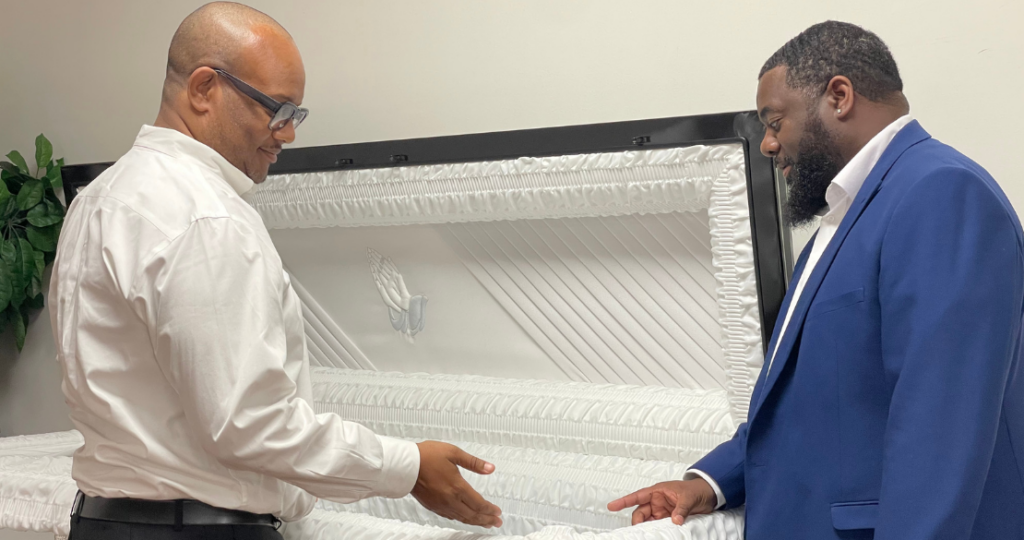Preparing for the Day: Organization and Planning
Morning Responsibilities
- Reviewing the schedule of services, visitations, and client meetings for the day
- Communicating with families, cemeteries, and clergy to confirm arrangements
- Preparing necessary legal documents and permits for upcoming services
- Ensuring that the funeral home facilities, vehicles, and staff are ready for scheduled events
Attention to detail is critical. A single oversight in timing, documentation, or family requests can impact a service, making organization a top priority.
Meeting with Families: Providing Emotional and Logistical Support
Key Responsibilities in Family Meetings
- Helping families choose between burial, cremation, or alternative options
- Discussing funeral service preferences, including religious or cultural traditions
- Assisting with casket, urn, and floral selections
- Gathering biographical information to write obituaries
- Providing grief support and referrals to counseling services when needed
Compassion and strong communication skills are essential. Funeral directors must listen carefully to each family’s needs and create a meaningful service that honors their loved one’s memory.
Behind-the-Scenes Responsibilities: Logistics and Documentation
Legal and Administrative Duties
- Filing death certificates and permits with the appropriate authorities
- Coordinating with hospitals, hospices, or coroners for body transfers
- Managing insurance claims and pre-need funeral plans
- Ensuring compliance with state and federal funeral service regulations
Service Coordination
- Booking venues, clergy, musicians, or speakers for services
- Arranging transportation for the deceased and the family
- Preparing memorial items, such as printed programs and photo displays
Funeral directors often work behind the scenes to ensure everything runs smoothly, allowing families to focus on honoring their loved ones.
Handling Embalming and Body Preparation
Embalming and Body Preparation
- Washing and disinfecting the body
- Performing embalming procedures to preserve the body
- Applying cosmetics, dressing, and styling hair for a natural appearance
- Restoring facial features in cases of trauma or illness
This aspect of the profession requires technical expertise and attention to detail, ensuring that the deceased is presented in a way that brings comfort to the family.
Conducting Funeral and Memorial Services
Duties During a Service
- Greeting and guiding guests as they arrive
- Ensuring seamless transitions between different parts of the service
- Managing audio/visual presentations or live-streaming services
- Assisting with graveside services and coordinating with cemetery staff
Funeral directors must remain calm, composed, and professional throughout the event, offering both emotional support and logistical guidance to the grieving family.
Supporting Families After the Service
Post-Funeral Services Include:
- Assisting families with final paperwork and thank-you notes
- Returning cremated remains and guiding families on memorialization options
- Providing information about grief support groups and aftercare programs
- Checking in with families to offer additional assistance
For funeral directors, service does not stop at the funeral. Many build long-term relationships with the families they serve, offering compassion and support in the weeks and months that follow.
